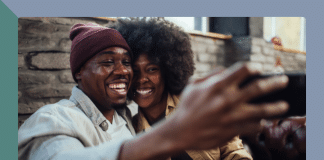 When I was little, people would remark how much I looked like my mother. Those people were wrong. Other people would tell me how much I resembled my father, and they were wrong too. I am adopted. When I refer to my parents, I am referring to the people who went to the hospital a few days after I entered the world, picked me up after all the birthing was done, and loved me my entire life. I am writing to bring awareness to transracial adoption. I’m writing as the voice for little boys and girls who look like me but whose parents don’t. I am sharing the truths I wish someone had voiced to my loving and well-intentioned parents. I am sharing from a place of love, not judgment.
When I was little, people would remark how much I looked like my mother. Those people were wrong. Other people would tell me how much I resembled my father, and they were wrong too. I am adopted. When I refer to my parents, I am referring to the people who went to the hospital a few days after I entered the world, picked me up after all the birthing was done, and loved me my entire life. I am writing to bring awareness to transracial adoption. I’m writing as the voice for little boys and girls who look like me but whose parents don’t. I am sharing the truths I wish someone had voiced to my loving and well-intentioned parents. I am sharing from a place of love, not judgment.
The Intention
Why did you adopt a child of color? If you say color doesn’t matter or you don’t see skin color, check your vision. We all see color. So why choose a child of a different race, particularly in a country with such a difficult history around race. A history steeped in centuries of slavery and oppression that wasn’t erased with a stroke of the adoption judge’s pen. It would be helpful to familiarize yourself with that history. You may benefit from an objective lens to explore those beliefs, thoughts, and feelings before they adversely impact your children. There are many resources that support the white parents of BIPOC children all of which can guide you to self-awareness. If you’re uncomfortable reading this, it’s a good indication that you’re in need of that kind of support. If you adopted a child of color and they are the only person of color in your world, that is an issue.
The Introduction
When you introduce your BIPOC adopted child(ren) by their current or genetic deficits, you are damaging your child’s sense of self. In so doing, you diminish your child to elevate yourself as their savior. As a biological parent to my own children, I never viewed my role as saving them because they never asked to be here. If you adopted a child(ren) of color, you are not doing them a favor. They do not owe you. If it was a calling by God to do so, reap your reward in heaven. How often do we introduce our biological children and say “I’m a recovering drug addict. I was using heroin when I gave birth. So my child has a lot of obstacles.” That sounds ludicrous, right? It’s not any different to say that when you are not the biological parent. It isn’t even your story to tell. My parents never shared my adoption story with anyone outside of their inner circle. My parents didn’t tell people how I came to be “their child” any more than I do my biological children. They were not ashamed that I was adopted but it didn’t matter, especially not to a random stranger or casual acquaintances. When you find yourself telling people outside of your circle the adoption story, the only intention, even subconscious, is to elevate yourself. Check your ego.
The Inner Struggle
My mom and I never talked about race. It seemed to make her uncomfortable. But I needed those uncomfortable conversations. I needed her to recognize my blackness. I needed my white mother to be aware of her white privilege. A privilege I will not inherit. I needed her to prepare me for life as a person of color in America. I needed her to check her comfort. As a black girl when I rebelled, I rebelled against whiteness. I rebelled against my biological mother’s whiteness. I rebelled against my mother’s whiteness. I rebelled against the oppression whiteness represented. I rebelled against my own whiteness. There is not one single day that goes by that I am not aware of my blackness, not one. Please let that marinate for a moment. Chances are if you are white, it isn’t something you think of often. I am not a representative for all people of color or interracially adopted children. But your child may struggle as I did with race in the context of their self-identity, so give them a safe space and support for their race to be central to their self-identity.
The Integration
America remains socially segregated. If you don’t believe me, you need only look at lunchrooms across the country or your local house of worship to see segregation is alive and well in America. Why do we migrate towards sameness? Diversity is really hard! It’s painful and uncomfortable. It requires a level of self-awareness and self-examination that most people do not have. Consider for a moment that just over a hundred years ago, your BIPOC child would have been your property. If you are uncomfortable, as a white person, with the notion of slavery, imagine what that discomfort is like or will be like for your child. Please don’t ask them to allay your worst fears. Please don’t excuse the abhorrent behavior of your ancestors. Don’t seek absolution. Don’t seek to be understood or forgiven. Let them ask all of the questions that you don’t have answers for and indeed ask yourself. Then create space for their feelings in a safe non-judgmental space and listen.








